'Peter Crouch is probably the most hated Englishman in our history'
- Published
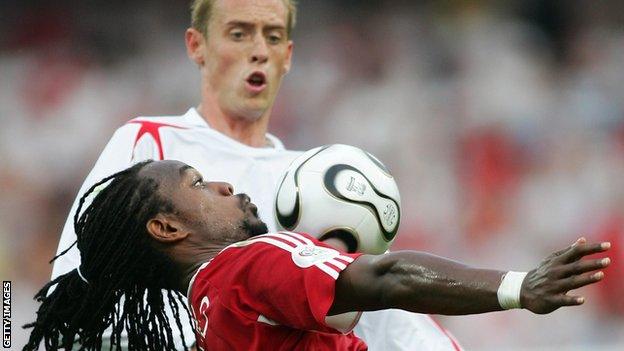
Crouch, pictured battling for the bal with Brent Sancho, angered a small Caribbean nation nine years ago
"I think Peter Crouch is probably the most hated Englishman in the history of Trinidad and Tobago because of that goal."
Nine years on, Brent Sancho can look back on the moment that sent both players into the footballing history of two small Caribbean islands with a bit of pride and dry humour.
There were eight minutes left of the goalless group match between England and Trinidad and Tobago at the 2006 World Cup in Germany when Crouch, then a Liverpool striker, used the defender's dreadlocks to help lever himself up to head home a trademark David Beckham cross.
Despite the clear infringement the goal stood.
"It is folklore here in Trinidad. It is one of those things that anywhere I go, people will always remind me," Sancho told BBC Radio Kent.
"Everyone has their spin on it - where they were when it happened and their dislike for him."
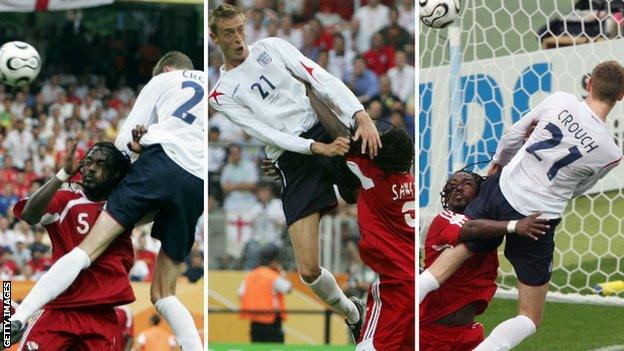
Crouch, now at Stoke, levered himself above the dreadlocked Brent Sancho to score England's first goal against Trinidad and Tobago in their 2006 World Cup group stage match
Crouch's goal saved England's embarrassment and Steven Gerrard added another goal in stoppage time to seal a 2-0 win.
England had almost slipped up against the smallest nation to ever qualify for the World Cup, and a squad containing 15 players who played in England or Scotland.
The Three Lions went on to exit the tournament at the quarter-final stage, losing to Portugal on penalties, while Trinidad and Tobago finished bottom of the group.
However, Sancho, who was then at Gillingham, has not rued what might have been and is proud to have been part of the first Trinidad and Tobago squad to play at the World Cup.
"I remember the game very vividly - holding off the English for 82 minutes until Peter scored that infamous goal," the 38-year-old added.
"Those things are part of football. I hold no animosities towards Peter - I think he is an absolutely fabulous player.
"It was such a brilliant fight from the guys. We really held our own and we walked out of that game being able to hold our heads up high.
"The performance against England, as a Trinbagonian and one of the 11 participants on the field, is something we can always look back at as something that was truly magnificent.
"We have struggled with our crime rate here in Trinidad and during games in the World Cup, crime went to practically zero. It is a testament to sports and what sports can do."
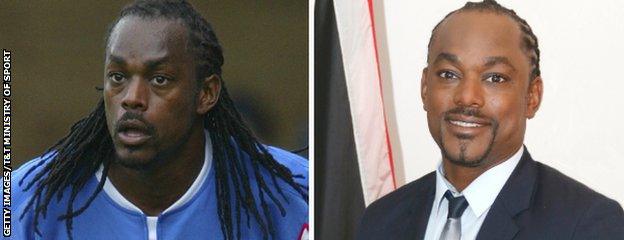
Sancho on one of his 50 outings for Gillingham and now, as Minister for Sport in Trinidad and Tobago
Sancho has not followed a traditional path since retiring from playing. Rather than go into coaching, management or punditry, the giant defender is now Minister for Sport in the government of the Republic of Trinidad and Tobago.
"It is a lot different walking the streets of Gillingham to the offices of the Parliament of Trinidad and Tobago," he said.
"It is a bit of a change but at the same point in time it is such a great achievement to be able to continue to represent my country.
"I got involved in the administration side of football when I finished playing. Politics was nowhere near my agenda.
"I don't view myself as a politician. I view myself as a sportsman with a task of implementing and changing the projection of sports in this country.
"I am very proud of being part of this government. I think the Prime Minister of Trinidad and Tobago has done a tremendous job in putting sports at the front and changing the scope of sports in this country.
"That was one of the things that really attracted me to the job."
Sancho's club v country dilemma | |
|---|---|
"We played Bahrain in a play-off game [to qualify for the World Cup]. "After we won and qualified, we were supposed to report back to Trinidad and Tobago where they had a massive celebration. "I remember calling Ronnie Jepson, the then-Gillingham manager, and explaining to him we were being honoured in Trinidad and Tobago. "His words to me were 'You know we have a game on Saturday? You make your mind up'. I was back on a plane and was able to play the game." |
Sancho believes his playing career in Britain - including spells at Dundee and Ross County - has played its part in his move into politics.
"My life experiences in the UK in general, living in Scotland and Maidstone and playing for Gillingham, has contributed heavily towards who I am now," he said.
"Being able to meet various people, living in the English culture and being part of the professional set-up in England has paved the way for me, in terms of where I am now.
"It is a lot different to being here on the island. The professionalism, mentality and work ethic of the English and the Americans has really sculpted me as an individual.
"It has probably put me on the platform for this new career I am just starting in."
Interview with Brent Sancho by BBC Radio Kent's Matt Cole.
- Published14 June 2015
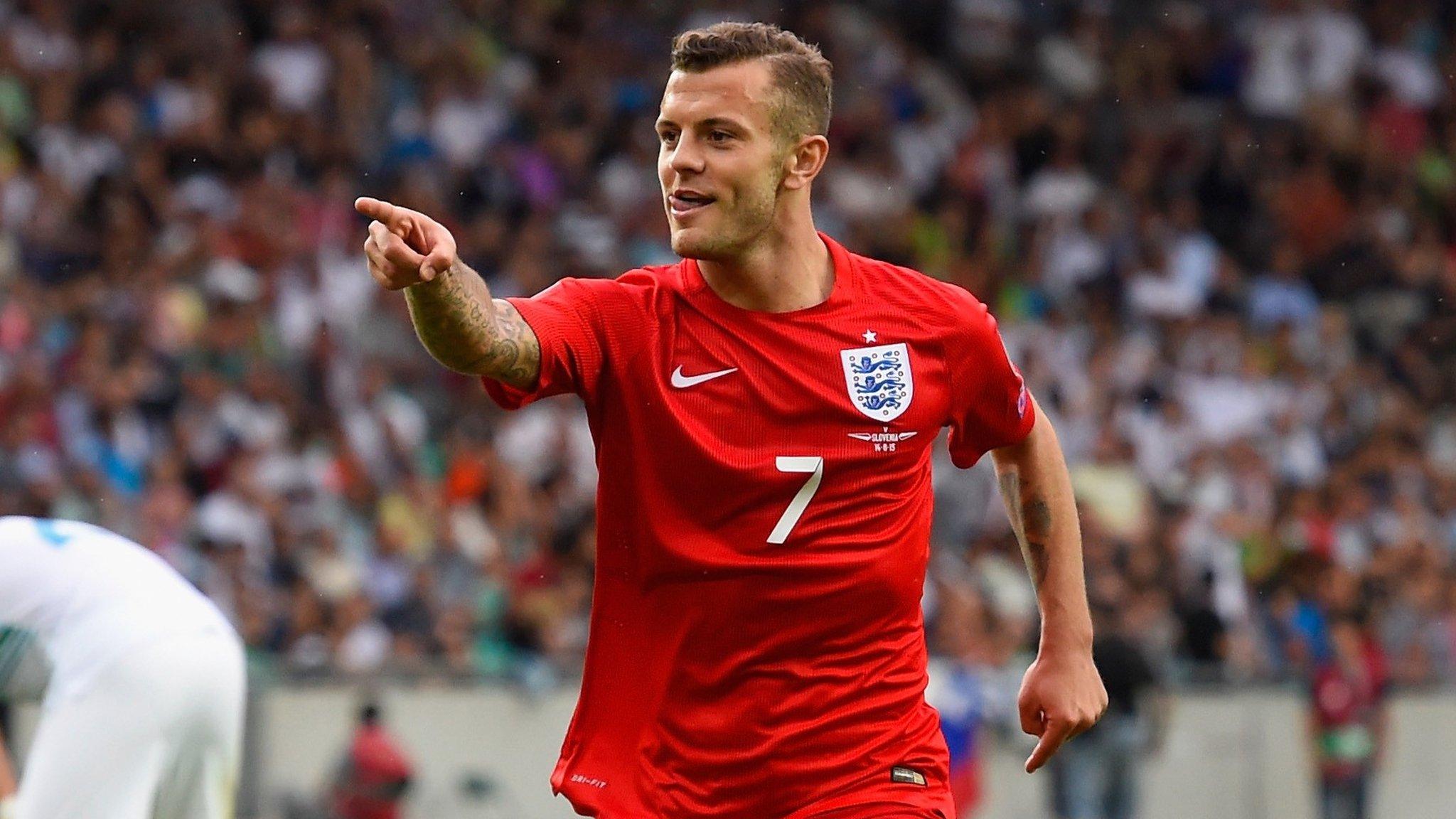
- Published14 June 2015
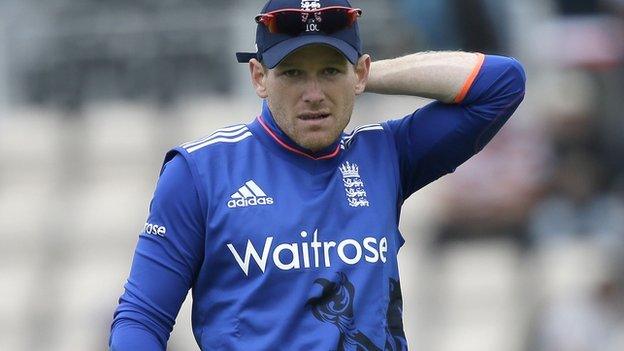
- Published15 June 2015

- Published14 June 2015

- Published7 June 2019
